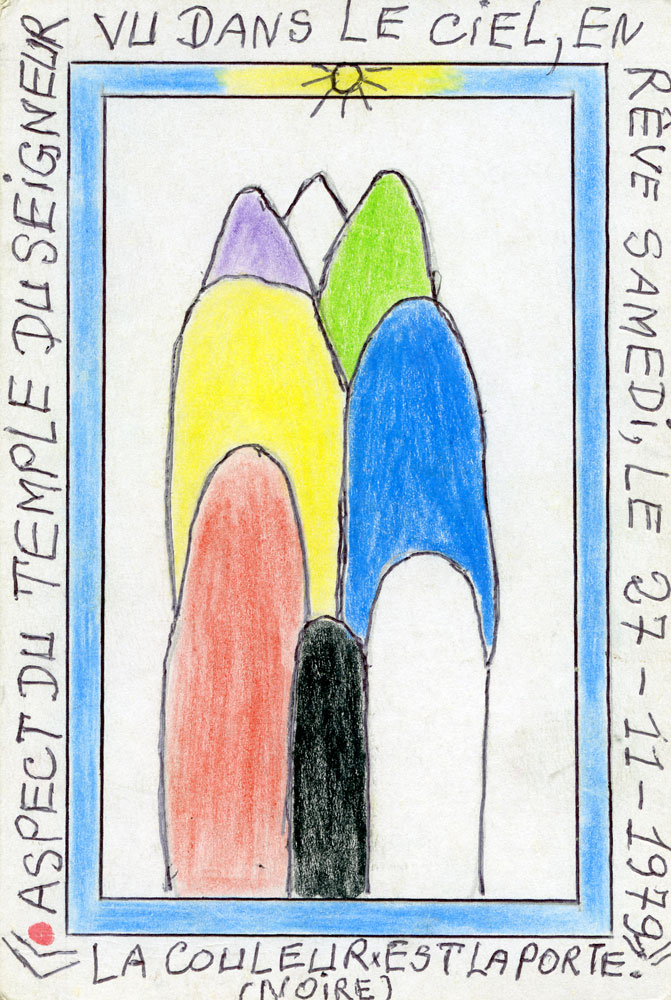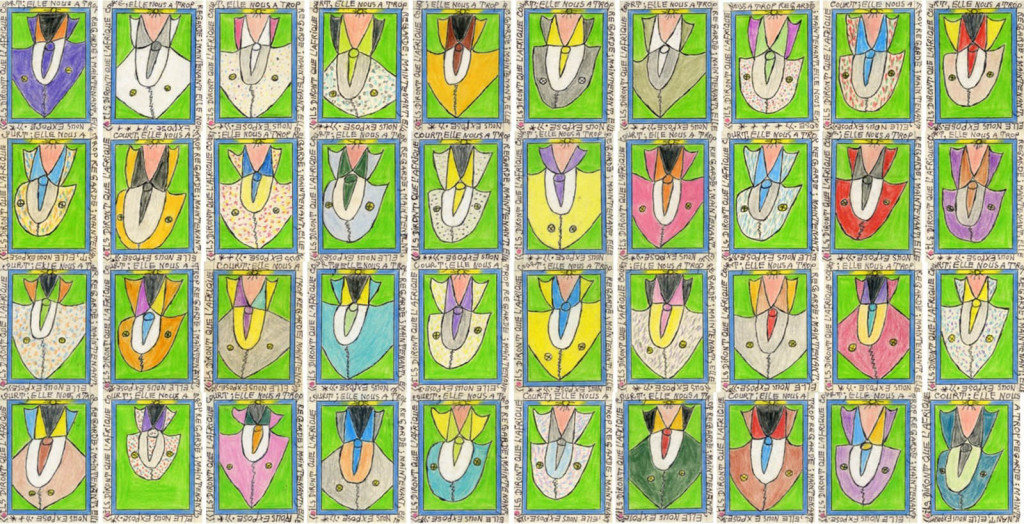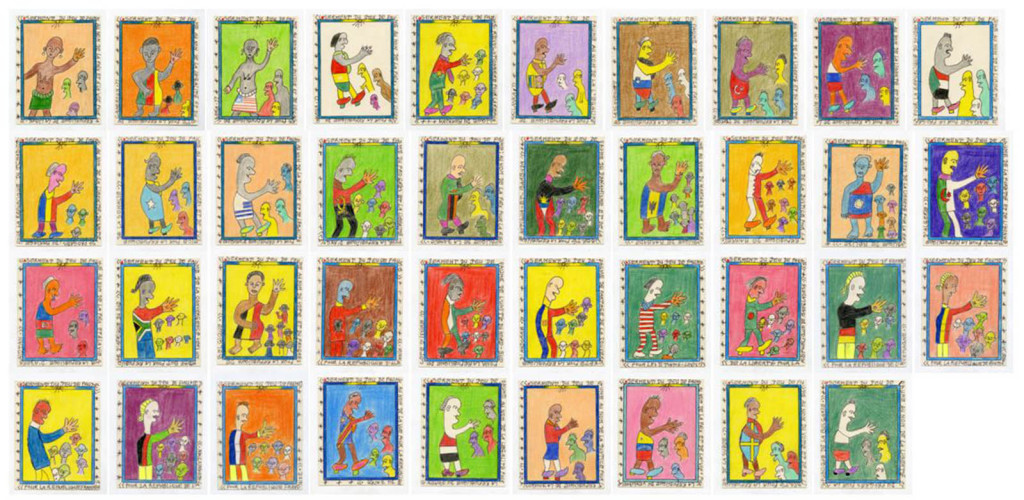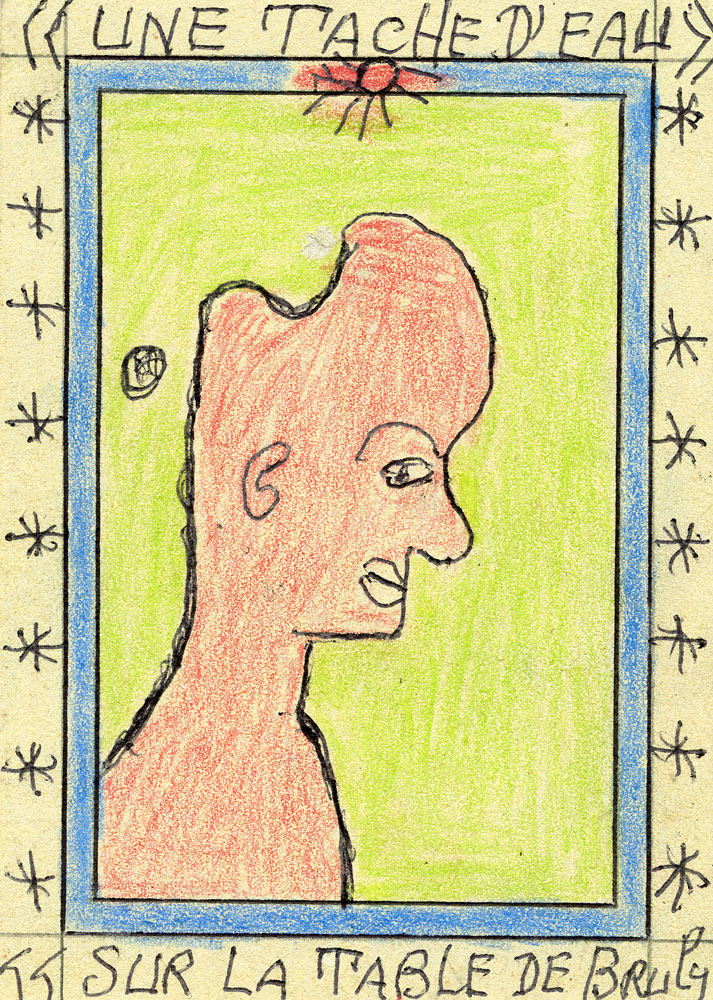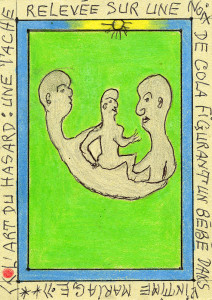
Frédéric Bruly Bouabré is one of the artists in ‘A Republic of Art’ in het Van Abbemuseum in Eindhoven, The Netherlands, until October 4, 2015.
L’art du hasard, 2007.
About:
Aspect du temple du seigneur, 2007.
The origin Frédéric Bruly Bouabré’s work stems from a revelatory experience: on March 11, 1948, when “the heavens opened before my eyes and seven colorful suns described a circle of beauty around their Mother-Sun, I became Cheik Nadro: ‘The one who does not forget.’”
The origin of all of Frédéric Bruly Bouabré’s work stems from a revelatory experience: on March 11, 1948, “the heavens opened up before my eyes and seven colorful suns described a circle of beauty around their Mother-Sun, I became Cheik Nadro: ‘The one who does not forget.’”
Since then, Bouabré compiled his research in manuscripts that deals with art, traditions, poetry, tales, religion, esthetics, and philosophy – revealing himself to be an astonishing thinker, poet, encyclopedist, creator. Searching for a way to preserve and transmit the knowledge of the Bété people and of the world, he invented a unique alphabet of448 monosyllabic pictograms, an inventory of sounds that would allow to transcript all the languages in the world.
Costumes, 2010.
Le serment du Jeu de Paume, 2010.
Une Tache d’Eau, 2010.
This endeavor earned Bouabré the legendary reputation of being another Champollion and translates the universal thought of Frederic Bruly Bouabré who since his vision, seeks to unite and pacify mankind. In the 1970s, he started to transfer his thoughts to hundreds of small drawings in postcard format, using a ballpoint pen and colour pencils. These drawings, gathered under the title of Connaissance du Monde (World Knowledge), form an encyclopedia of universal knowledge and experience. For Bouabré, his drawings are a representation of everything that is revealed or concealed — signs, divine thoughts, dreams, myths, the sciences, traditions — and he views his role as an artist as a redemptive calling.
Bouabré died in 2014.

